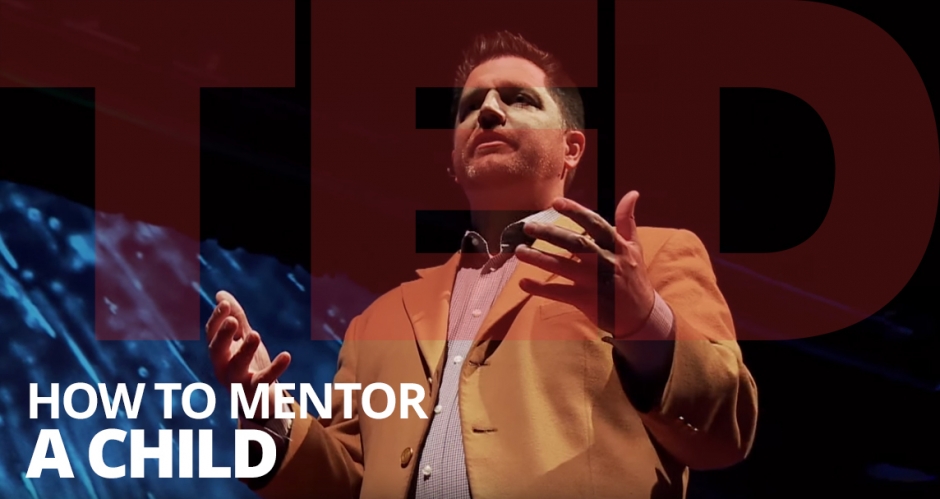Jon Bullock is executive director for the Redmond Proficiency Academy, a school that he founded. A lifelong mentor, here he shares his insights into how to nurture a child’s potential
A couple of weeks ago I found myself in the midst of a youth soccer tournament. As I stood on the field, observing games being played, I watched keenly as one coach instructed his team. In the course of 15 minutes, I did not hear him make a single positive comment to any of his players.
I was struck in the moment by the thoughts of what it takes to be a successful mentor for children. Coaches, like teachers and others who work with children, are called upon to serve as mentors.
It is important to know that it isn’t just coaches or teachers that a child could come to look to as a mentor. All children desperately need and want mentors, so you could be one without even knowing it. Now what should that mean to you? Mentors help people grow and develop. They provide strength, guidance and love.
Being a mentor is more than just spending time with a student. It requires an investment of time, energy, patience, effort and, most importantly, love.
So many people question what is wrong with young people, what is flawed about this generation. ‘Kids these days’ is a popular refrain. That same refrain has been heard by us from parents, coaches, teachers and mentors as it was heard by them from theirs.
Adults are quick to correct students, telling them what they did wrong, telling them what to do better. We need to allow our children to fail. From failure comes growth, strength, resilience. How else will young people learn about the way in which the world works unless we allow them to overcome their struggles?
Young people receive messages of disapproval throughout the day from many of the adults around them. ‘Pull up your pants. Put down your phone.’ These are common refrains – sometimes even verbal insults – hurled at young people. A mentor does not shield a student from this, but rather a mentor provides young people with a constant and reassuring voice of support. A mentor provides a student with a reliable ear, someone who is always available to listen. That active participation and not control is the key in how you can contribute.
Our children do not want someone to sweep in and rescue them. They do not need helicopter parents that fly in at any instance of trouble to save the day. We need to allow our students to struggle, but we also need to support them. Struggling is okay if it’s met with love and turned into a learning opportunity. Young people need to understand they are not alone. They have a support structure. They have a network of people truly interested in their growth and development.
Understanding that one has a supporting cast is a wonderful thing. Students are extremely intuitive and can tell when they’re engaging with someone that is sincerely invested in them. They want people who are interested in their lives and in their struggles. Sure, they want advice, but they want more than that.
Rather than stories of how it used to be and how much easier teens have it today, teens want you to listen to them, to love them.
Now, this is not to say that a mentor’s role is simply a permissive one. Rather, mentors should serve as an example for the young person. A mentor should demonstrate strong decision-making skills, live an exemplary life, and be there to catch them when they fall.
The P.O.P. Principle. Be Present. Be Open. Be Positive.
Throughout my years of working with young people, I have tried to find a simple way in which to help them live a positive, productive life. Several years ago, I created the P.O.P. Principle. I argue that by following this simple truth that young people can make the most of any situation. I think the same holds true for mentors. This simple principle can help mentors create productive and meaningful relationships with the young people with whom they work and mentor.
Being present means far more than just being there, though that is a good start. In order to be an effective mentor and to build a strong and meaningful relationship with a young person, you have to show up. You have to be there. You have to be present. Focus your efforts and energy on your mentee and on the experience you are having. Young people can sort out sincerity rather quickly. Mentors should be completely present and engaged.
While it might be tempting to share everything you know with a young person, be open to what you can learn from your mentee. Be open to new experiences. Be open to new ways of thinking. Young people are often criticised for the way they look, the clothes they wear, the amount of time they spend on their phone.
Young people are often faced with negativity, and because they look to adults to learn how to handle adversity, it is critically important that mentors help young people see the bright side of situations and possible solutions rather than failure.
Being a teenager is a dress rehearsal for being an adult. This means students will experiment and explore; students will make mistakes.
Students need not be reminded about their mistakes; students need not be told what they did wrong and told what they should have done. Teens need someone to listen to them work through the mistake, rather than criticise or condone it. Mistakes will happen. Students will struggle. Mentors are there to help them through this. One way in which to do this is to be consistent. Another is to be compassionate. Another is to listen. And the most important is to love.
Find more at jonbullockspeaks.com





